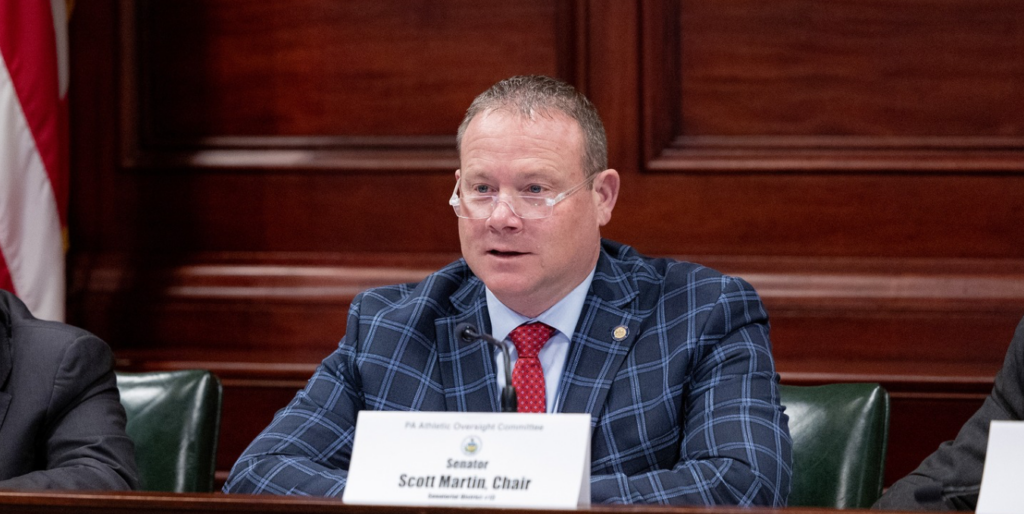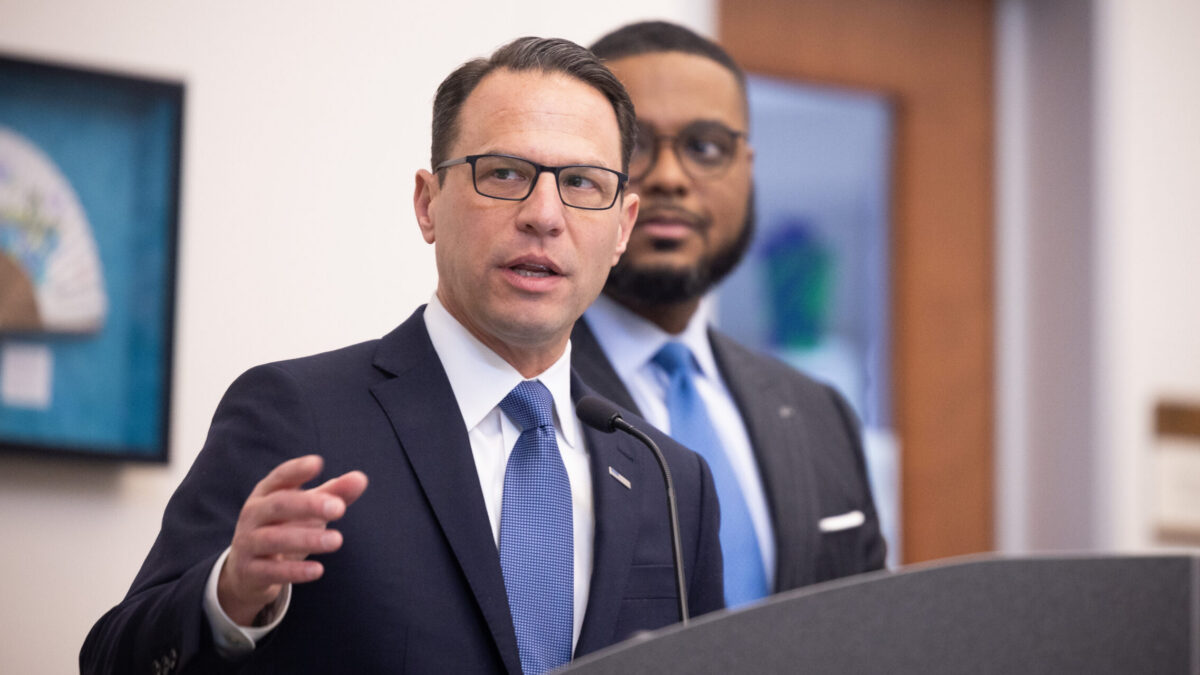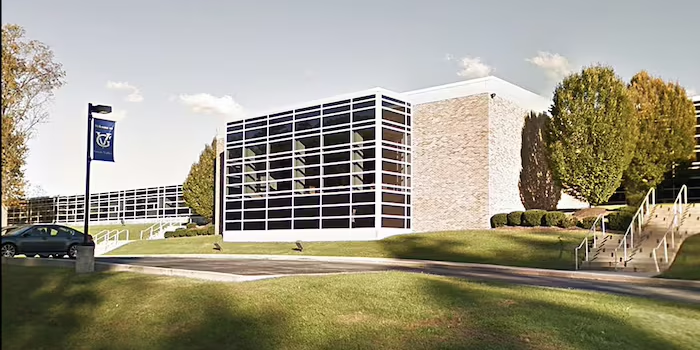Beth Ann Rosica: School choice yields high returns for vulnerable students
Imagine if you could wave a magic wand and grant all children the education that their parents choose for them. In the current climate of Pennsylvania politics where school choice has become a battleground, the magic wand is exactly that: a quixotic notion.

However, there is an option for some Philadelphia families with limited financial resources who live in neighborhoods with the lowest performing schools. The Children’s Scholarship Fund Philadelphia offers hope and opportunity to students destined to attend failing district schools.
Not only does the needs-based scholarship program provide financial and other supportive services for families, but data from a new independent report shows that recipients are outperforming their public school peers.
The Children’s Scholarship Fund Philadelphia (CSFP) is an education non-profit that provides poor Philadelphia families with financial access to K-8th grade private schools. Families apply for the scholarship, and awards are made based on need through a lottery system twice a year. Each participating family must commit at least $500 per year per child towards tuition.
Crystal Best is a parent of a graduating eighth grade student at the DePaul Catholic School who has been the recipient of a scholarship since kindergarten. “My daughter needed a smaller class size and the local public school had 32 students in a class. It was a blessing to get the scholarship because without it, she would not have had this opportunity.”
Best credits the academic rigor at DePaul for her daughter’s success and subsequently, she earned a full scholarship to Little Flower Catholic High School for girls, where she will attend class in the fall. In addition to the financial resources, CSFP provides other support services to families through a parent leadership program. Best volunteered as a parent leader and the liaison with DePaul. Even though her daughter is moving on, she hopes to continue to volunteer to give back for everything she received from the program.
The newly released report was conducted by QREM, an independent, third-party evaluation firm that CSFP contracted with following a competitive bid process. There were several key findings, and the most striking is that students in the CSFP program are more likely to be proficient in reading and math than both their public school peers and their private school peers.
This is significant because most people would expect that private school students would outperform public school students, especially when the comparison group comes from the lowest performing schools in the Philadelphia School District. However, the study also found that the scholarship students scored slightly higher than the rest of the students in their private school.
The report also highlights that the longer a student stays in the private school, the better the results. Basically, longevity matters when it comes to academic outcomes as was the case for Best’s daughter. Based on this finding, CSFP now gives a commitment to students through 8th grade once accepted into the program. Previously, parents had to apply every year and were not guaranteed continual funding.
CSFP President and CEO, Keisha Jordan, said that they are “proud of the results, but we need more.” Currently the program provides scholarships to almost 6,200 students with an annual budget of $13.5 million. The program partners with 150 different private schools in the city, including faith-based institutions. The average tuition rate across the schools is $6,300 – less than half of the cost of Philadelphia public schools, whose elementary education rate is $14,000 for this last school year.
Jordan said that the recipients of the scholarships are typically living below the poverty line and sacrificing every day to ensure their children get a quality education. Many work two to three jobs to manage their share of the tuition. She acknowledges that the testing results may be in some part a result of a self-selection process, meaning that the scholarship recipients are a biased sample because their parents are heavily invested in their education. But she does not think that is the whole story.
“Every parent wants what is best for their children,” said Jordan, and there are many more families that they want to help. Each year, they are forced to deny a number of applications. For the 2023-24 school year, 76 students who applied to the lottery were not offered a scholarship, and that number is currently 1,276 students for the 2024-2025 school year.
Overall, the study indicates that scholarship students are outperforming their public school peers:
- 54 percent of CSFP 7th grade students score at or above proficiency in math, compared to 19 percent of Philadelphia School District (PSD) students
- 47 percent of CSFP 4th grade students score at or above proficiency in math, compared to 23 percent of SDP students
- 61 percent of CSFP 7th grade students score at or above proficiency in reading, compared to 38 percent of SDP students
- 59 percent of CSFP 4th grade students score at or above proficiency in reading, compared to 30 percent of SDP students
In addition to academic testing outcomes, scholarship recipients have a 99 percent graduation rate from high school in four years compared to the district’s rate of 74 percent. According to Jordan, 98 percent of students in the program attend the high school of their choice whether magnet, charter, or private school. 72 percent of scholarship students in 2022 went to college, compared to the district’s 48 percent rate.
CSFP has an aggressive campaign to raise $100 million dollars over five years with the hope to serve 7,700 kids in the 2026-2027 school year. Jordan said that the scholarships are made possible in part by EITC and OSTC funding and believes that the report underscores the importance of these programs to support educational success in Philadelphia. Expanding the Lifeline Scholarship program is also a priority for CSFP as those funds can be used to supplement their scholarship funding, and that would enable more students to attend the school of their choice.
The Commonwealth Foundation hosted an event to raise awareness about the importance of Lifeline Scholarships. Leaders in the school choice community spoke about giving the poorest kids in the worst schools and their parents a choice about where to go.
“Don’t protect a system, protect a child.”
“Their fight is every single day.”
“Stop worrying about the adults and worry about the kids.”
These sentiments were expressed in support of programs like CSFP to give students an opportunity for a successful educational experience.
According to Jordan, there are 250,000 Pennsylvania children who live in zip codes with low achieving schools, and many of those are in Philadelphia.
The question remains whether the Pennsylvania legislature and the Governor will put party politics and special interest groups aside and prioritize our most vulnerable children and families.
Beth Ann Rosica resides in West Chester, has a Ph.D. in Education, and has dedicated her career to advocating on behalf of at-risk children and families. She covers education issues for Broad + Liberty. Contact her at barosica@broadandliberty.com.




